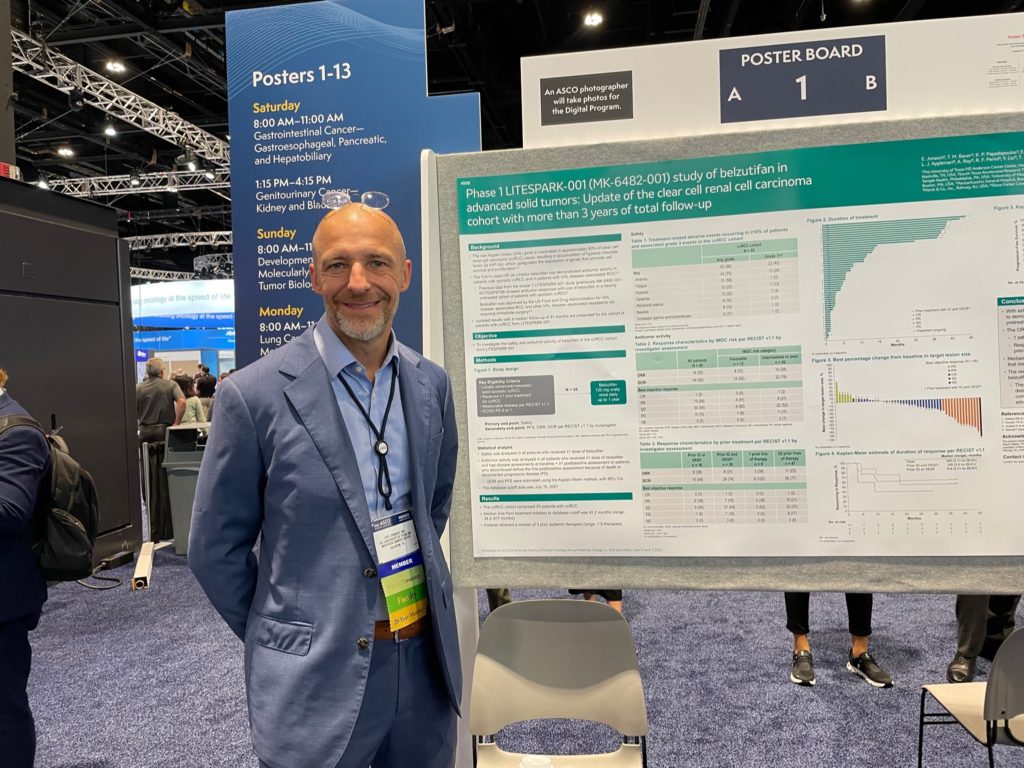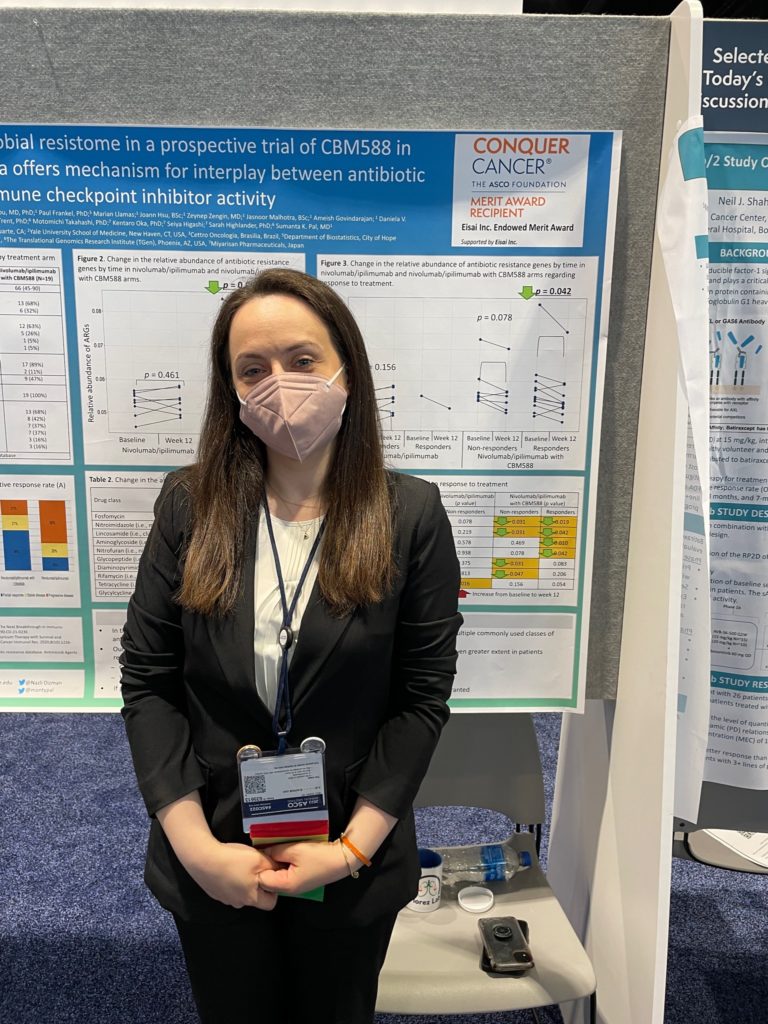
My 2.5-year journey with translocation renal cell carcinoma
April 30, 2024
This is a guest post by Dawn Dyson, 37, who was diagnosed with translocation renal cell carcinoma in 2022. Dawn…
Read MoreBy D’Ann George, PhD, Medical Writer

Positive Phase 1 Data on a “new class of drug” for ccRCC
There has not been a new class of drugs for people with metastatic renal cell carcinoma (mRCC) since checkpoint inhibitors first entered clinical trials nearly a decade ago. At his poster presentation during the 2022 American Society of Clinical Oncology (ASCO) meeting, Dr. Eric Jonasch, a genitourinary oncologist at MD Anderson Cancer Center in Houston, Texas, presented data from an ongoing clinical trial of the targeted therapy drug belzutifan, a HIF-2 inhibitor. The trial data, said Jonasch, showed “a median progression free survival of 14.5 months and an objective response rate of 25 percent” in patients with progressive kidney cancer after a median of 41 months. (Abstract 4509)
“The safety of the drug is also good,” said Jonasch, “with anemia and fatigue the most common side effects.”
FDA approval for belzutifan depends on the results of another ongoing study, said Jonasch.
“We are waiting for the results of LITESPARK 005 study, which compared belzutifan to Everolimus. If this study is positive, we can expect belzutifan to be FDA approved for patients with treatment-refractory kidney cancer,” he said.
Another oncologist at the poster presentation, Dr. Andy Armstrong of Duke University, who was not involved in the study, called belzutifan “a new class of drug” and noted that “we need them.”

Study Generates Novel Hypotheses About Workings of Gut Microbial Dysbiosis in mRCC Patients
Previous research has highlighted the gut microbiome’s positive influence on responses to checkpoint inhibitors in various types of cancer. A related finding is the detrimental impact of antibiotics — which destroy the microbiome — on outcomes with immunotherapies. And now Dr. Nazli Dizman, an internal medicine resident at Yale University and research fellow at City of Hope in Duarte, California, shared the results of her team’s investigation demonstrating similar findings in patients with mRCC at the recent ASCO meeting. In those results, treatment with the live bacterial product CMB588, which helps repopulate the gut microbiome, improved the effectiveness of antibiotics in fighting infections. For patients who responded well to combination treatment with ipilimumab and nivolumab and CBM588, the antibiotics worked even better. Dizman won an ASCO Merit Award for this report. (Abstract 4510)
While not definitive due to the small sample size, her team’s results build on a randomized clinical trial that the team, including Dizman as first author, published in Nature Medicine earlier this year. In that study, patients received combination ipilimumab plus nivolumab with or without CBM588. The team’s follow-up analysis yielded an important hypothesis that is now being tested in preclinical studies at City of Hope.
“We now hypothesize that CBM588 may enhance the effect of immunotherapies when given after antibiotics,” Dizman said.
Dizman and an international team of experts are developing a large randomized controlled clinical trial to investigate CBM588 further.